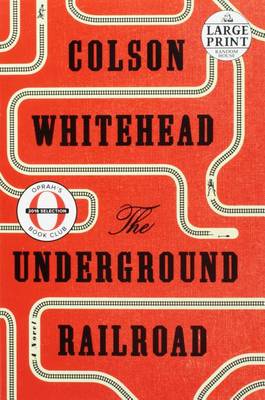Georgia
Georgia functions like a typical slave state. There are large plantations that house many slaves. Cora was born here and has been on her own since her mother escaped when Cora was nine. All she has of her own is a very small plot of land where she grows some vegetables. After she violently defends her plot from an interloper, she is an outcast among the slaves.
When the master dies and the plantation is in the hands of his sadistic sons, an educated slave convinces Cora to escape with him. He tells her about the Underground Railroad. This is a literal railroad underground with stations under houses of abolitionists. There aren't many stations now. Service is erratic at best and no trains may come at all. They run and catch the train.
South Carolina
Slavery is illegal here. Former slaves are educated and given places to live. They have jobs and the ability to live a peaceful and productive life. But there is a strange tension. There is a feeling of something sinister under the surface of this utopia.
North Carolina
African-Americans are banned here. Labor is done by immigrants from Europe. The penalty for an African-American being in the state or a white person helping a black person is death.
Tennessee
Tennessee is dismal and bleak. The slave catcher finds her here but she escapes with help from some other escapees.
Indiana
In this free state, black people live happily on a prosperous farm but will they be allowed to keep their enclave?
This book addresses a lot in a short space.
- The hierarchy of slaves
- Torture
- Slave catchers
- White people reluctant to help to free people
- Black people helping to catch escaping slaves
- What is an ideal society?
My only issue with this book is that there is a jarring change of story structure in Tennessee that took me completely out of the story. I had to work to get back into it. I've talked to other people who have read this and they agree that it was strange. That's the only reason why I'm going with 4.5 stars instead of 5.
I loved the idea of making it a literal train and exploring each state as a different form of government. It lets him examine what might have been after emancipation if different ideas took hold.
First come first served This review was originally posted on Based On A True Story
